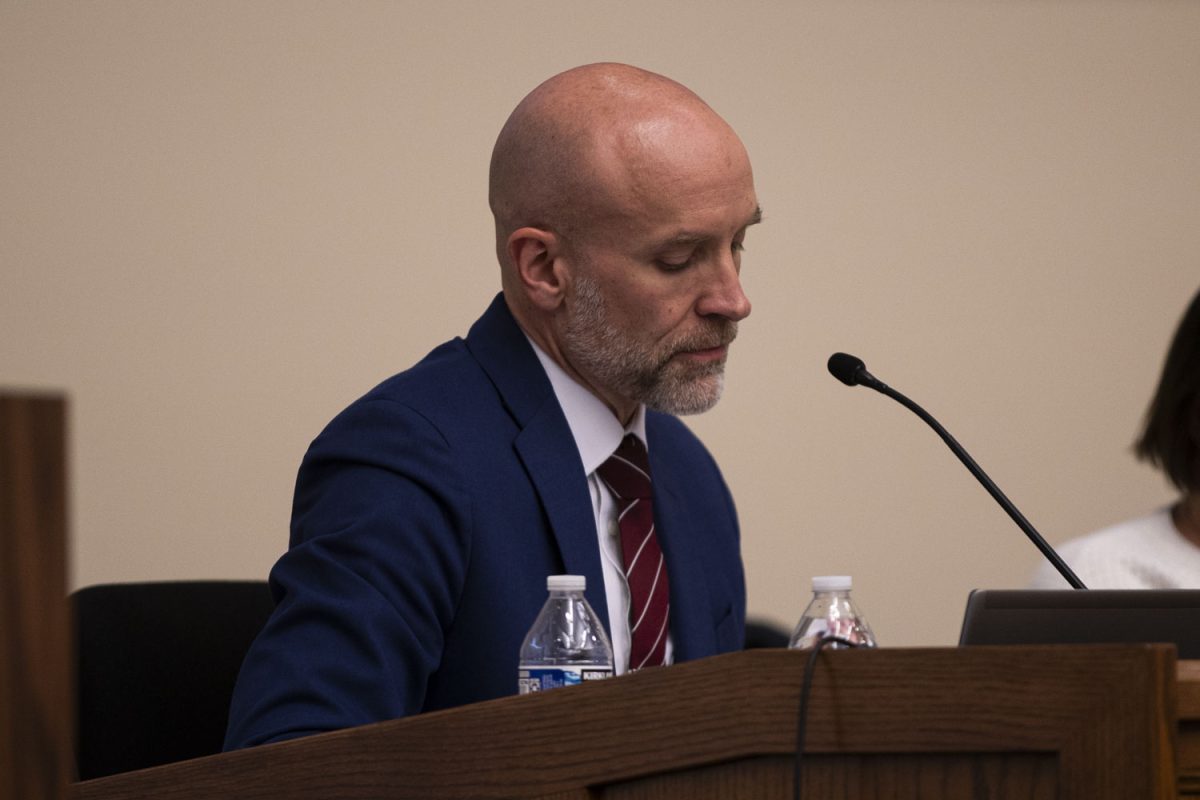President Obama and GOP presidential nominee Mitt Romney have very different tax plans, and locals can’t seem to agree which man’s policy would be better for the economy.
“No one likes to pay taxes, but we understand that taxes are dues paid for a civilized society,” Sen. Tom Harkin, D-Iowa, said at a campaign event in Tipton last week.
However, some have a different perspective about taxes.
Robert Gettemy, a small-business owner and University of Iowa lecturer on game theory, said he believes while the country cannot survive without taxes, the revenue generated from increased taxes tapers off.
“There is a point of diminishing returns,” said Gettemy, who ran in the primaries as a Republican for Iowa’s 2nd Congressional District in 2010. He cited the example of Illinois, which passed a 66 percent increase in income tax in 2011.
According to a CNN survey, American voters are keenly interested in the presidential candidates’ tax plans alongside other economic issues.
Obama’s income tax policy proposal sharply contrasts with Romney’s.
Obama wants to let Bush-era income-tax cuts expire for all households making more than $250,000 — technically increasing the tax on richer households by about 4 percent, while keeping rates the same for everyone else.
Romney wants to extend the Bush tax cuts for all households while also decreasing income tax by 20 percent for all income groups.
A tax accountant at Ernst & Young — one of the Big Four accounting firms — said Romney’s income-tax plan favors the rich, because it actually brings down the tax for wealthy households down by 7 percent, while decreasing the income tax by 2 percent for the lowest income bracket.
“You don’t have to be an accountant to figure that one out,” said Anjali Singh, the tax accountant.
“People making more money will pocket a larger share of their income than people with low-paying jobs. There is nothing fairer, flatter, or simpler about his plan.”
Both Obama and Romney see a need to bring down the corporate-tax rate — currently set at 35 percent. While Obama wants to tweak it down to 28 percent, Romney wants to go a step further and bring it down to 25 percent.
Gettemy said while a lower corporate-tax rate is good, he believes corporate tax should be abolished because they are hidden taxes that are eventually passed on to the consumer.
The candidates’ views on taxes for multinational corporations also differ greatly.
While Romney wants to switch to a territorial tax system, in which overseas profits made by American businesses are not taxed — Obama wants to become stricter on profits made offshore by taxing them at the time of income rather than when the firm decides to ship the income back to the United States.
Experts say there are major problems with both plans.
UI economics Professor Raymond Riezman said Obama’s plan is too harsh on multinationals and has the potential of compelling them to completely move their operations abroad.
Roberton Williams, a senior fellow at the Tax Policy Center in Washington, acknowledged Obama’s plan is slightly harsh on multinational corporations but said Romney’s territorial-tax system could leak a lot of revenue and ship more jobs abroad.
“In a territorial-tax system, it is very difficult to maintain revenue,” Williamson said. “It is hard to make sure that people report income where it is actually earned. You have to be very careful in how you design a territorial-tax system and make sure you don’t lose revenue because firms can juggle the books.”






